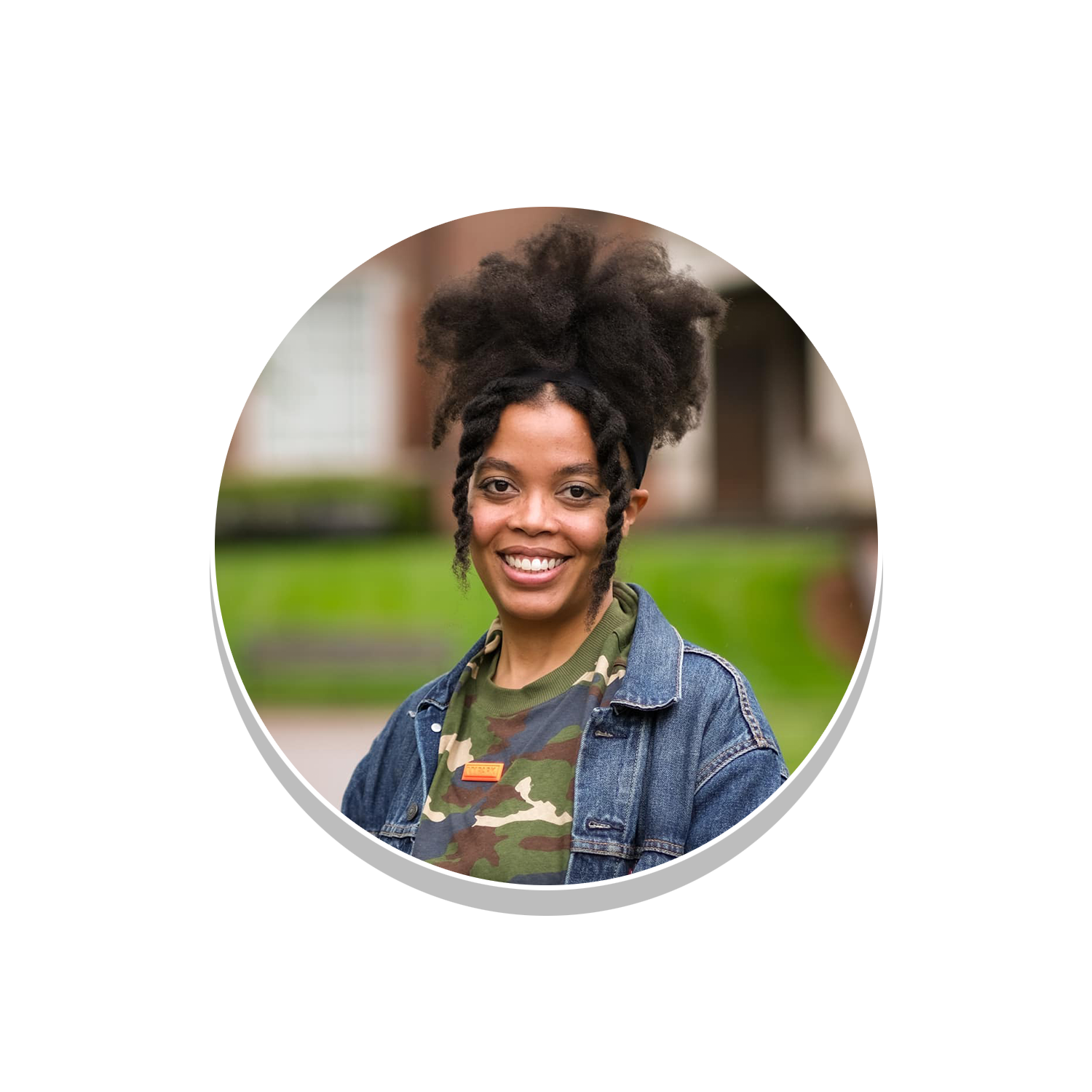One of my strongest memories of my paternal grandmother is sitting with her at the piano, listening to her play and sing her favorite songs. She had a soft spot for love songs, and she taught me how to plink along to “Heart and Soul” almost before I could read. The majority of her repertoire, though, was made up of hymns. She sang “How Great Thou Art,” and “Just a Closer Walk with Thee,” and “What a Friend We Have in Jesus” in such a heartfelt way, eyes closed and head raised as her hands played over the keys, that I now feel those tunes imprinted somewhere underneath my skin. My grandma’s faith was the center of her life, and church was always the center of her community—the place where she met her friends, pursued her hobbies, and raised her children. She passed away when I was 12, and I still think of her as the model for what a loving Christian life might look like. There have been many times in my life when I wished that I had the kind of faith she had—a trust in God’s presence and power that seemed absolutely unshakable.
I wonder if the people of Israel, returning from their captivity in Babylon, thought of their grandparents in much the same way. The book of Haggai opens with the word of God coming to the titular prophet, and directed toward the two leaders of the decimated Israelite community: Zerubbabel and Joshua. Zerubbabel was the grandson of the last autonomous king of Judah, and had been chosen by the Persian king Darius I to be the governor of the returning Israelites. Similarly, Joshua was the grandson of the last priest in the temple in Jerusalem before its destruction, and had been chosen as the spiritual leader of this first group of returnees. Together, these two men were given the task of shepherding the Israelite people from the center of the new Persian empire to their ancestral homeland on the outskirts and finding some way to rebuild, despite the fact that neither of them had ever been there.
You see, both Joshua and Zerubbabel would have been born and raised in exile and only heard stories about the greatness of the kingdoms of Israel and Judah from their parents and grandparents. I’m sure there were plenty of “Back in my day…” speeches from older family members as they were growing up, many of which focused on the splendor and majesty of the temple, and the certainty that God would someday redeem the people and bring them back home. Imagine the shock, then, when Zerubbabel and Joshua and the remnant of the community crested the last hill and saw the absolute destruction of the temple, the settlements of strangers where their family dwellings used to be, and realized that all they had to rebuild with were the materials and memories they’d brought with them. If their hope faltered, if they wished in that moment that they had the faith and experiences of their grandparents to rely on, we can hardly blame them.
And so, for the first nineteen years after their return, the people focused on their immediate needs. They laid out the foundations for a new temple where the old one had stood, but then quickly moved to build houses and plant fields so that everyone had a roof over their head and food to eat. They did what they had to do to survive, but without a completed spiritual center there was still a piece of their community missing. Sacrifices couldn’t be made, and rituals that were essential for Israelite identity and practice couldn’t be observed. In the early days focusing on immediate needs made sense, but after more than a dozen years the lack of a temple became a problem.
This is when God speaks through Haggai, whose name means something like “one who observes the holy festivals,” and says, “’Is it a time for you yourselves to live in your paneled houses, while this house lies in ruins?… Go up to the hills and bring wood and build the house, so that I may take pleasure in it and be honored,’ says the Lord. ‘You have looked for much, but it came to little, and when you brought it home, I blew it away. Why?’ says the Lord of hosts. ‘Because my house lies in ruins, while all of you hurry off to your own houses’” (Hag. 1:4, 8-9 NRSVUE).
The central concern of the book of Haggai is the construction of the second temple, and it takes God calling for a drought on the land for the people to sit up and realize that something is wrong. To their credit, the Israelite returnees act quickly once Haggai clues them in to what’s going on and resume work on the temple immediately.
But put yourself in Zerubbel and Joshua’s shoes as they return to the foundation they left off on almost twenty years ago. Not only are they trying to build a temple that lives up to the stories and expectations of their grandparents—they’re trying to do it with the scraps they have on hand as a community still lacking resources. While the temple of their grandparents was made from cedar wood from Lebanon, this new temple would be made with whatever trees happened to be growing nearby. While the temple their parents remembered was filled with gold, silver, and expensive incense, as well as the Ark of the Covenant, the new temple of the survivors would be nearly empty.
Discouragement must have set in early, because the second prophecy comes to Haggai only one month into construction. God speaks tenderly to the people and says, “’Who of you is left who saw this house in its former glory? How does it look to you now? Does it not seem to you like nothing? But now be strong, Zerubbabel,’ declares the Lord. ‘Be strong, Joshua son of Jozadak, the high priest. Be strong, all you people of the land,’ declares the Lord, ‘and work. For I am with you,’ declares the Lord Almighty. ‘This is what I covenanted with you when you came out of Egypt. And my Spirit remains among you. Do not fear’… ‘The glory of this present house will be greater than the glory of the former house,’ says the Lord Almighty. ‘And in this place I will grant peace,’ declares the Lord Almighty” (Hag. 2:3-5, 9 NIV).
As queer and trans people of faith, many of us have had the experience of looking around at the ruin of what used to be the temple in our hearts. Conversion therapy, family rejection, legislative persecution, screaming street preachers—all claiming to speak with God’s mouth—have torn the curtains to shreds, toppled the pillars, and stolen our sacred trust. We have had pieces of ourselves taken away and been exiled from the faith that was our home. And yet, we have held on to the stories of abundant life and unconditional love that were passed down to us, and we have chosen to return home and rebuild, despite it all. In the beginning we look to what we need to survive and spend time triaging the open wounds, but eventually there’s an empty space that calls for attention.
That movement back toward the rubble and half-finished foundation is daunting, and when I compare my faith to what I remember of my grandmother’s, the building still under construction sometimes feels a bit shabby and precarious. And yet, I’m not building with the same access to materials that she did. Yes, we both hold on to the hymns that feed us and we both experience crises of faith in the valleys of our lives, but only one of us has grown up in exile. Only one of us has been called an abomination so many times that we almost began to believe it. And only one of us has learned how to take the scraps that even the pillagers rejected and make a home and a community.
So when you and I begin to rebuild the sanctuaries of our hearts we may feel discouraged, and that is when God’s message through Haggai comes soaring back into view: “Be strong and keep building, for I am with you. In this place I will grant peace.” As our Jewish siblings in the Pirkei Avot, the Ethics of the Ancestors have said, “You are not obligated to complete the work, but neither are you free to desist from it” (2:21). Just get started—the Holy One who gathers the outcasts, who adopts the orphan, and who breathes the spark of life into the spaces we construct—will do the rest.

Austen Hartke is the author of Transforming: The Bible and the Lives of Transgender Christians, a book on theology and personal narratives published by Westminster John Knox Press, now in its second edition. He is also the founder and Executive Director of Transmission Ministry Collective, an online community dedicated to the spiritual care, faith formation, and leadership potential of transgender and gender-expansive Christians. Austen is a graduate of Luther Seminary’s Master of Arts program in Old Testament/Hebrew Bible Studies, and is the winner of the 2014 John Milton Prize in Old Testament Writing from the same institution. As a transgender person of faith, Austen’s greatest passion is helping other trans and gender-expansive people see themselves in scripture.



Unbound Social